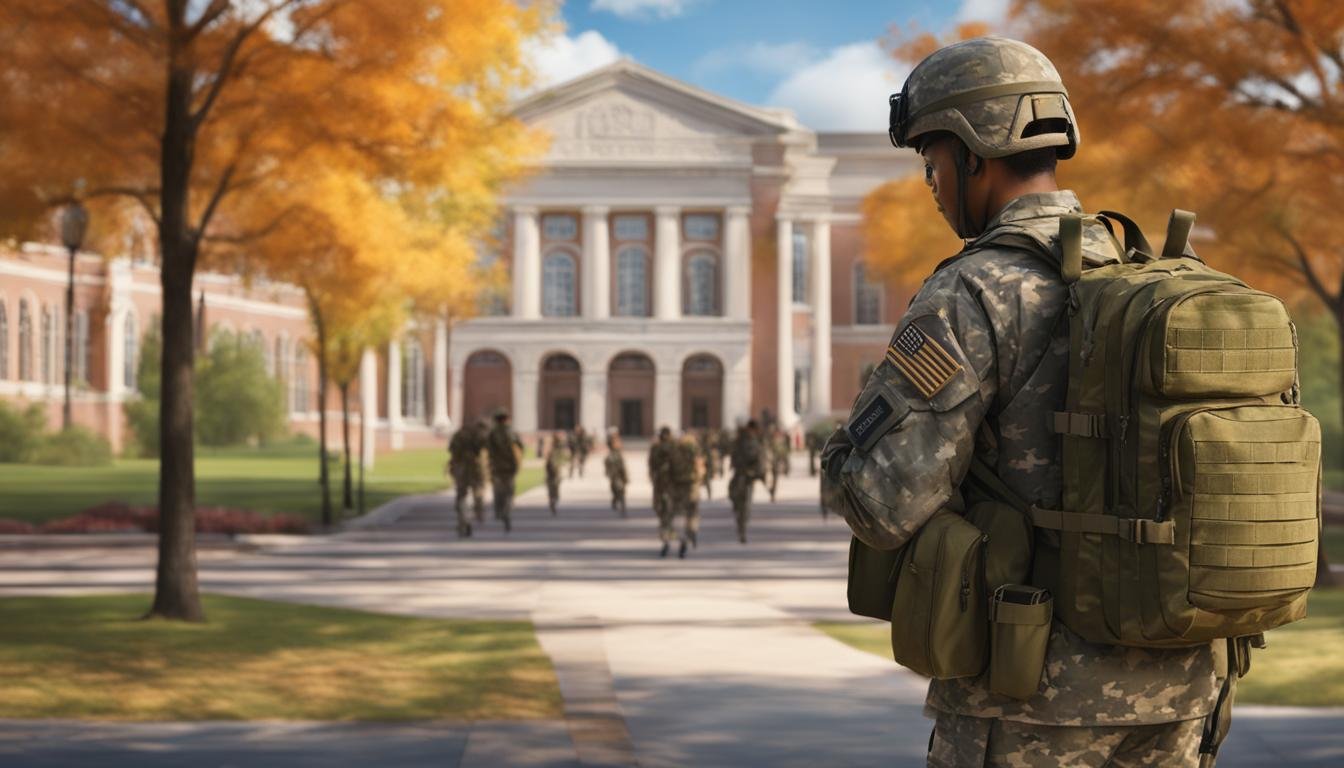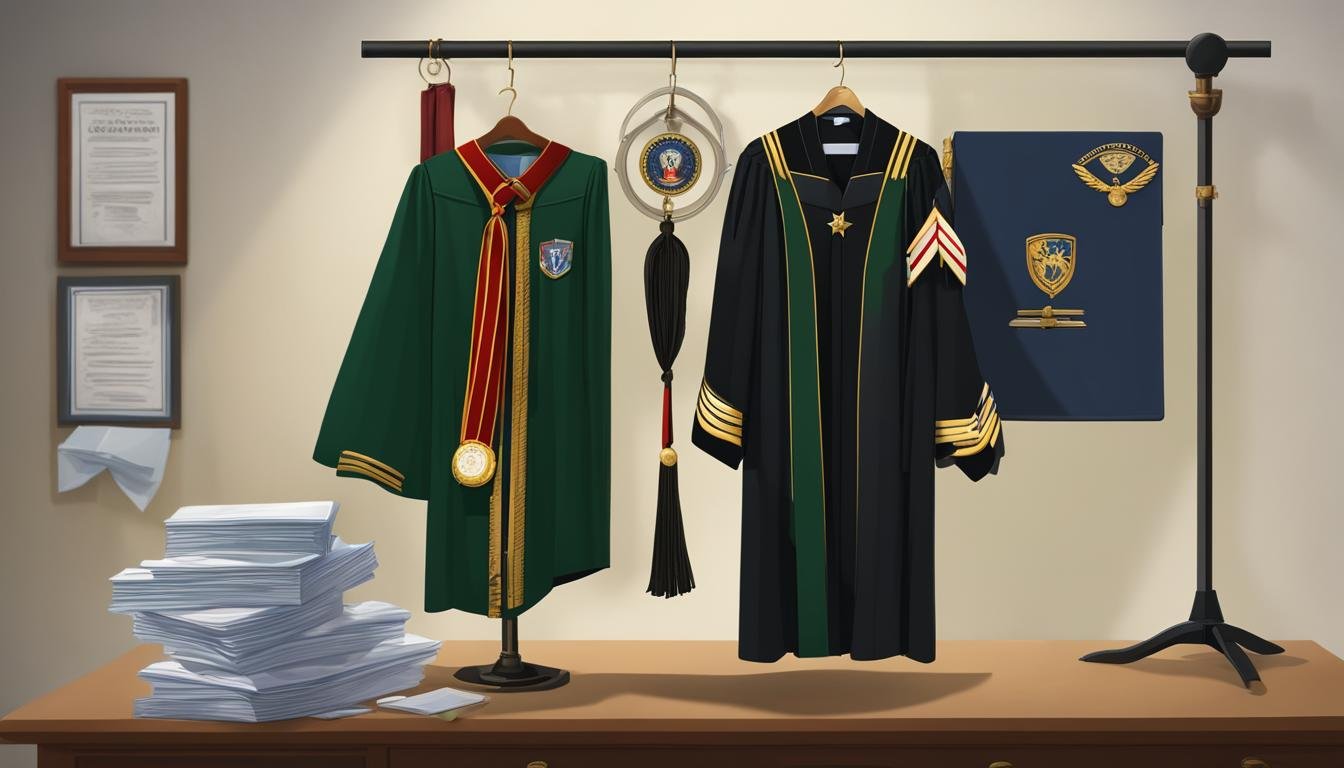Transitioning into college academics as a veteran can be both advantageous and challenging. As a veteran, you bring valuable qualities such as discipline, focus, and leadership skills, which can contribute to higher GPAs and graduation rates compared to traditional college students. Additionally, financial resources like the GI Bill and continued access to healthcare from the military can make your transition easier.
However, it’s important to acknowledge the challenges that veteran students may face. Many of you may be first-generation college students, navigating the unfamiliar terrain of academia. Balancing finances and family responsibilities alongside your studies can also add to the complexity. Furthermore, physical and mental health challenges may arise due to your military experiences.
To ensure a successful transition, it’s crucial to tap into the resources available specifically for veteran students. Your campus may offer veterans services to provide support and guidance. Organizations like Student Veterans of America can connect you with a network of peers who understand your unique circumstances. Additionally, programs such as the Veterans Integration to Academic Leadership (VITAL) program offered by the Department of Veterans Affairs can provide tailored assistance.
Transitioning to college academics as a veteran requires careful adjustment and utilizing the available resources to your advantage. With the right support and strategies, you can thrive in your educational journey.
Key Takeaways:
- Transitioning to college academics as a veteran has advantages and challenges.
- Veterans often have higher GPAs and graduation rates due to discipline and leadership skills.
- Financial resources and continued access to healthcare aid in the transition.
- Challenges include being a first-generation college student, managing finances and family responsibilities, and addressing physical and mental health issues.
- Tap into resources such as veterans services on campus, support organizations, and programs provided by the Department of Veterans Affairs.
Managing Workload and Finding Support as a Veteran Student
Transitioning to college academics as a veteran comes with its own set of challenges. Managing your workload effectively is crucial to ensure academic success. Here are some strategies to help you overcome the challenges of college academics as a veteran and find the necessary support:
1. Set Personal Goals and Prioritize Tasks
Start by setting clear, realistic goals for yourself. Break down larger tasks into smaller, manageable steps. Prioritize your tasks based on deadlines and importance. By organizing your workload, you can prevent feeling overwhelmed and stay on top of your assignments.
2. Utilize Time Management Tools
Take advantage of various time management tools available to help you stay organized and productive. Use digital calendars, productivity apps, and task management systems to keep track of your assignments, deadlines, and study sessions. Creating a schedule and sticking to it can significantly improve your time management skills.
3. Practice Self-Care
As a veteran student, it’s important to prioritize self-care to maintain your physical and mental well-being. Engage in activities that help you relax and recharge, such as exercise, hobbies, or spending time with loved ones. Taking breaks and practicing self-care can enhance your focus and productivity when you return to your academic work.
“Success is not the key to happiness. Happiness is the key to success. If you love what you are doing, you will be successful.” – Albert Schweitzer
Remember to reach out for support when needed. Many colleges and universities offer academic support services specifically tailored for veteran students. Take advantage of tutoring resources, study groups, and academic advisors who can provide guidance and assistance as you navigate through college academics. Additionally, connect with fellow veteran students, join student organizations, and seek out mentoring programs that can offer a sense of community and understanding.
By managing your workload effectively and utilizing available support systems, you can overcome the challenges of college academics as a veteran student and set yourself up for success.
| Challenges | Strategies for Overcoming |
|---|---|
| Feeling overwhelmed by workload | Break tasks into manageable steps, prioritize, and utilize time management tools. |
| Juggling finances and family responsibilities | Seek financial counseling, create a budget, and establish a support network for personal matters. |
| Dealing with physical and mental health challenges | Access campus counseling services, join support groups, and establish self-care routines. |
What Academic Support Resources are Available for Veterans at College?
Many colleges offer academic support resources for veterans to help with their transition to college. These resources may include counseling services, peer support groups, and tutoring programs. Additionally, social integration tips for veterans can help them connect with other students and feel more at home on campus.
Accessing Mental Health Support and Building a Supportive Network
Transitioning to college life as a veteran can bring about various challenges, including mental health concerns. It is crucial to prioritize your well-being and utilize the resources available to support your journey.
One essential step is to seek out mental health support services provided by your college or university. Many institutions have counseling centers or health services that offer confidential assistance tailored to the unique needs of veteran students. These professionals can provide guidance, coping strategies, and a safe space to discuss any difficulties you may be facing.
In addition to on-campus services, the Department of Veterans Affairs (VA) offers resources specifically designed for veterans. VA resources encompass Vet Centers, which provide counseling and readjustment services, and the Veterans Crisis Line, a 24/7 hotline for immediate support. These resources can be instrumental in addressing mental health concerns and creating a strong support network.
Building a supportive network of people who understand and empathize with your experiences is also vital. Reach out to organizations like Student Veterans of America (SVA) for opportunities to connect with fellow veteran students on campus. SVA chapters often organize events and offer mentorship programs, allowing you to build friendships, share advice, and access a supportive community.



